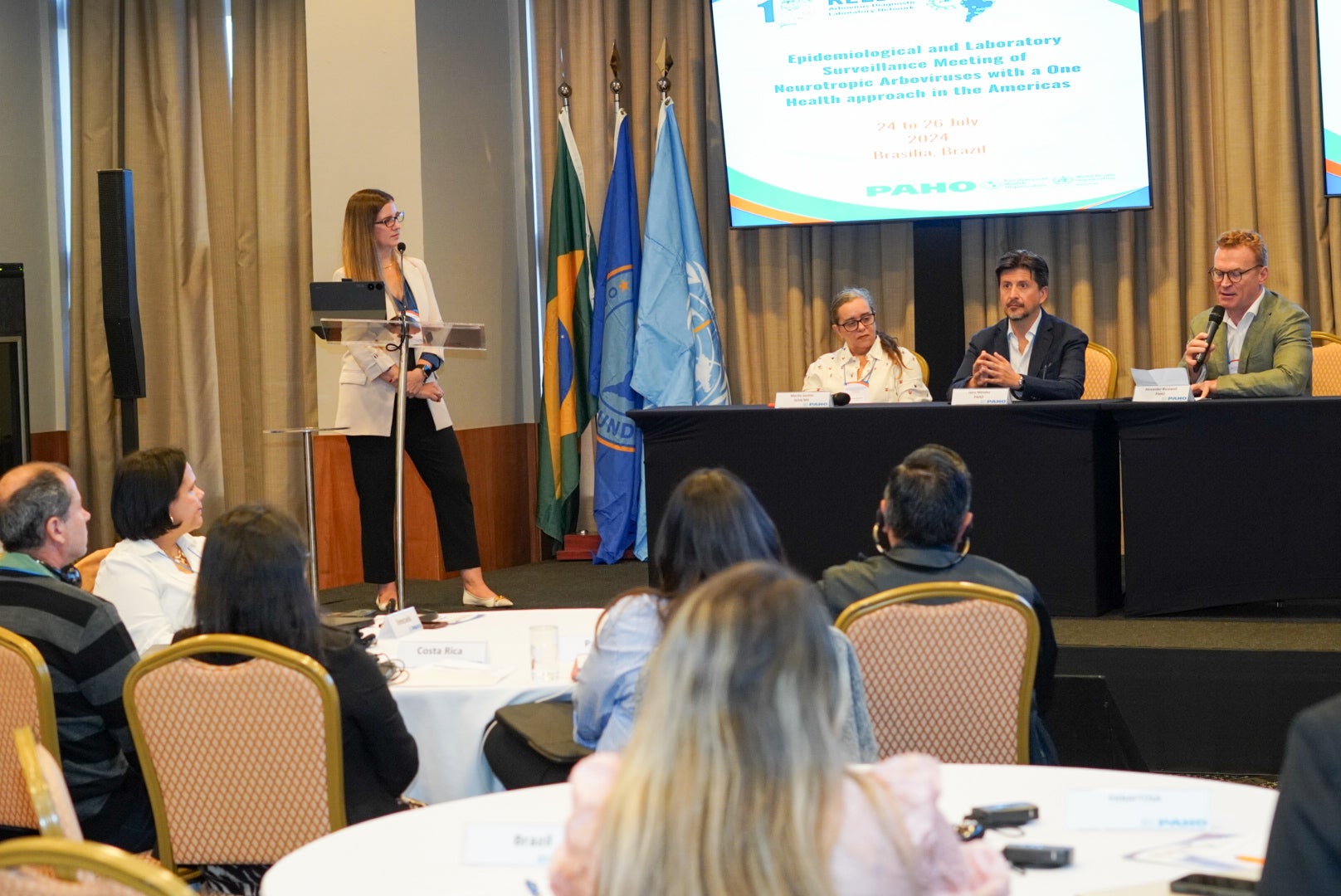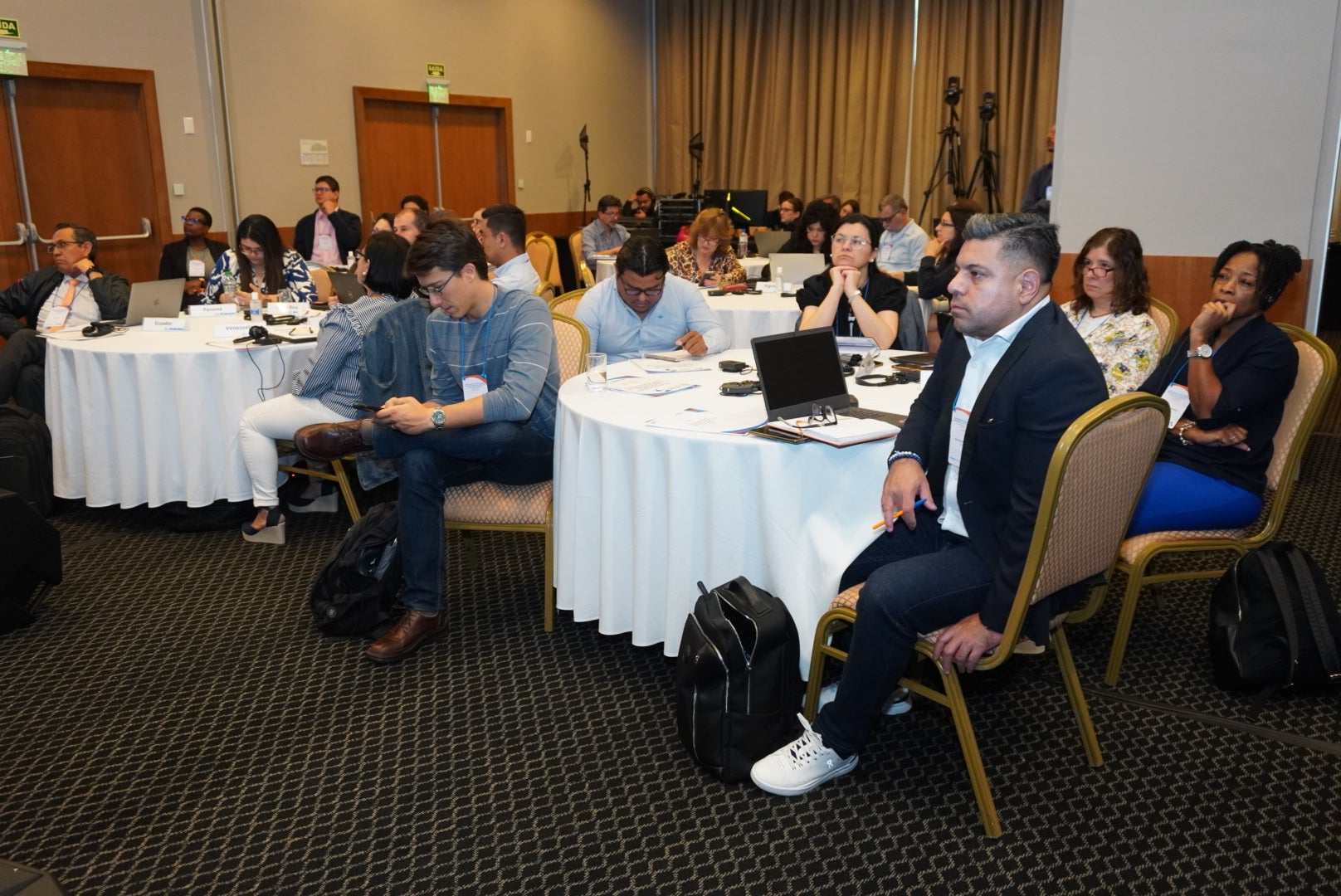
Brasilia, 25 July 2024 (PAHO)— The Pan American Health Organization (PAHO), through its Infectious Hazards Management Unit of the Health Emergency Department (IHM/PHE), in collaboration with the Vector Control Unit of the Communicable Diseases Department (VT/CDE), and the Brazilian Ministry of Health and experts across the Americas, organized a critical regional meeting focusing on the surveillance of neuroinvasive arboviruses. This three-day event, to be held in Brasília, Brazil starting on July 25, gathers specialists from Argentina, Barbados, Brazil, Colombia, Costa Rica, Ecuador, Mexico, Panama, Peru, Uruguay, the United States, and Venezuela. The meeting is a key initiative under the One Health approach, which integrates human, animal, and environmental health perspectives to address the challenges posed by these viruses.
Arboviruses are a broad class of RNA viruses from families like Flaviviridae, Phenuviridae, Togaviridae, and Reoviridae that are spread by arthropods like mosquitoes, biting midges, and ticks. Since these viruses can cause serious neurological symptoms in people, it is crucial to have efficient surveillance in place to stop outbreaks and manage the spread of these infections. Notably, because of their propensity to spread quickly and cause epidemics, viruses like the West Nile virus (WNV), St. Louis encephalitis virus (SLEV), and Wester (WEEV) and Venezuelan equine encephalitis viruses (VEEV) are of particular concern.
During plenary and group sessions, participants will discuss key topics that include the state of neurotropic arboviral diseases in the region, analysis of recent outbreaks and their effects on public health, epidemiological surveillance strategies in humans, clinical features, current approaches and challenges to the detection and monitoring of these diseases, surveillance in vectors and animal reservoirs, identification of animal reservoirs and their role in virus transmission, and the development of regional recommendations, standardizing protocols for the surveillance and management of neurotropic arboviruses.
It is important to highlight the continuous participation of four PAHO/WHO Collaborating Centers in this effort: CDC Arboviral Diseases Branch in the US, the Institute of Epidemiological Diagnosis and Reference (InDRE) in Mexico, the National Institute of Human Viral Diseases "Dr. Julio I. Maiztegui" (INEVH) in Argentina, and the Evandro Chagas Institute (IEC) in Brazil. These centers have been instrumental in developing surveillance and control strategies, as well as in research and response to outbreaks of neuroinvasive arboviruses.
Dr. Teresa Varela, Director of Epidemiological Surveillance and Outbreak Control of the Ministry of Health of the Province of Buenos Aires, remarked “In this meeting, we emphasize once again the need for coordinated efforts across all countries to adequately prepare and respond. It is essential to draw upon the experiences of countries with more advanced expertise in this field. From Argentina, where we recently faced an outbreak of Western equine encephalitis, we aim to collaboratively develop a unified work agenda that extends beyond the health sector. This effort will also involve other key players, such as the environmental and animal health sectors. The issues highlighted here reinforce the importance of the One Health approach, which serves as our common focus and a guiding principle for enhancing community health”.
The expected results include a work plan for developing specific recommendations for neurotropic arbovirus surveillance, an identification of the advantages and disadvantages of the current surveillance systems, and improved understanding of the epidemiology and disease burden caused by these viruses, which will aid in the making of public health decisions. This initiative is crucial to preparing the countries of the Americas for the persistent threat of arboviruses with pandemic potential, ensuring a coordinated and effective response to protect public health.





